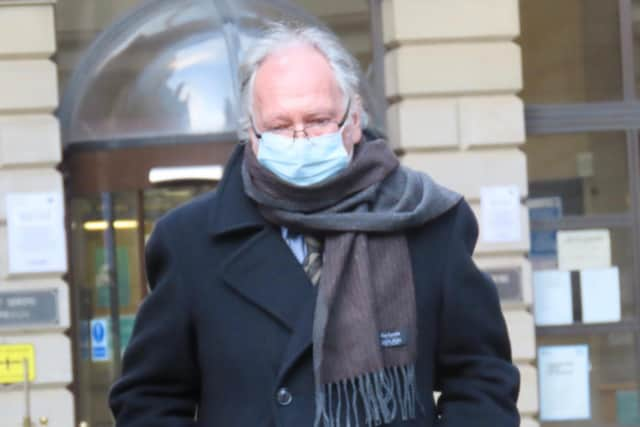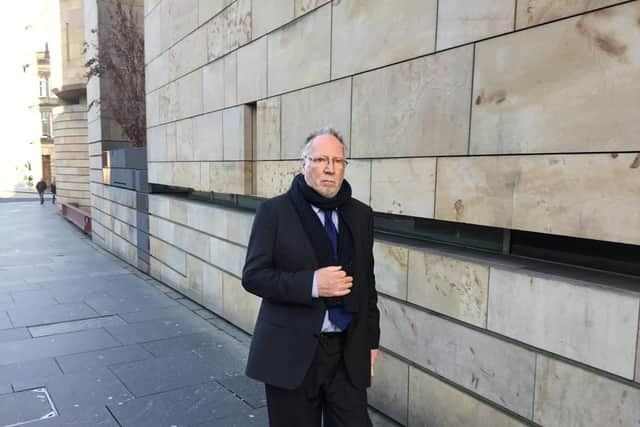Crooked East lothian architect who embezzled £350k from student charity ordered to pay back £700k profits and a fine
and live on Freeview channel 276
Ian Brash used the embezzled cash to buy himself a new Alfa Romeo, two Land Rovers and a wind turbine for use on land he owns in East Lothian.
The scheming father-of-two also paid thousands of pounds to fund deposits for properties for his children and spent thousands on large vet bills run up by his family.
Advertisement
Hide AdAdvertisement
Hide AdBrash, 67, admitted taking £358,832 from the Dr Robert Malcolm Trust (DRMT) between 2010 and 2014 after he had been appointed the sole trustee of the charity which was set up to provide financial assistance to British medical students and doctors.


Sentence had been deferred for more than two years for Brash to sell his family home - the A-listed Faside Castle, near Tranent, East Lothian, to fund repayment to the charity.
The shamed architect returned to the dock at Edinburgh Sheriff Court on Wednesday where Sheriff Frank Crowe heard the large 15th century property is still on the market.
The court was previously told that prosecutors were seeking to use the proceeds of crime legislation against Brash and were seeking a total of £1,590,512.
Advertisement
Hide AdAdvertisement
Hide AdBut Sheriff Crowe was told the Crown and Brash’s defence team had come to an agreement where he would pay £700,000 regarding the proceeds of crime act.


Brash has already paid back £320,753 to the charity and will have to pay them a further £198,590 in full recompense. He will also have to pay a further £180,656 to the court which will go towards the Scottish Government Cash Back for Communities Schemes.
‘Difficult’ case
In sentencing, Sheriff Crowe described it as “the most complicated and difficult” compensation case he had dealt with, adding: “In this case assets from the Trust became intermixed with your own personal business.
“The purpose of the Trust was to fund bursaries for medical students to help with studying and there came a time where these bursaries failed to be paid out.
Advertisement
Hide AdAdvertisement
Hide Ad

“There should be an element of punishment here and I will avoid a prison sentence. I will restrict myself to a financial penalty.”
Brash was also ordered to pay a fine of £140,000 and has has three years to pay.
Mark Stewart QC, defending, said his client had “attempted to make right the wrong he had committed” and attempted to come to an agreement with charity regulator OSCR before criminal proceedings began.
Previously the court was told Brash was appointed the sole trustee of the DRMT in 1987 after a relative who had set it up died.
Advertisement
Hide AdAdvertisement
Hide AdIn 2012, OSCR became “concerned about the movement of funds” between the charity’s bank account and the retired architect’s personal account and an investigation was set up.
Brash claimed the charity’s cash had become “mixed up” with his own finances over the years and that missing funds had been invested in property for the future benefit of the charity.
But when pressed by the regulators for evidence of this claim he could not provide any of the paperwork to back up his claims.
The regulator reported the matter to the Crown Office and the case was subsequently passed on to Police Scotland’s Economic Crime Unit.